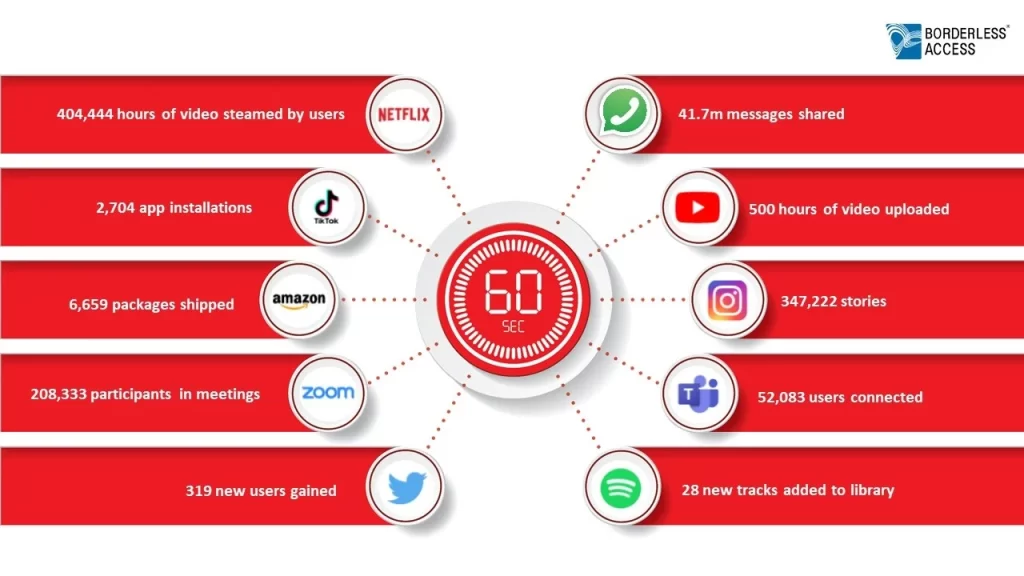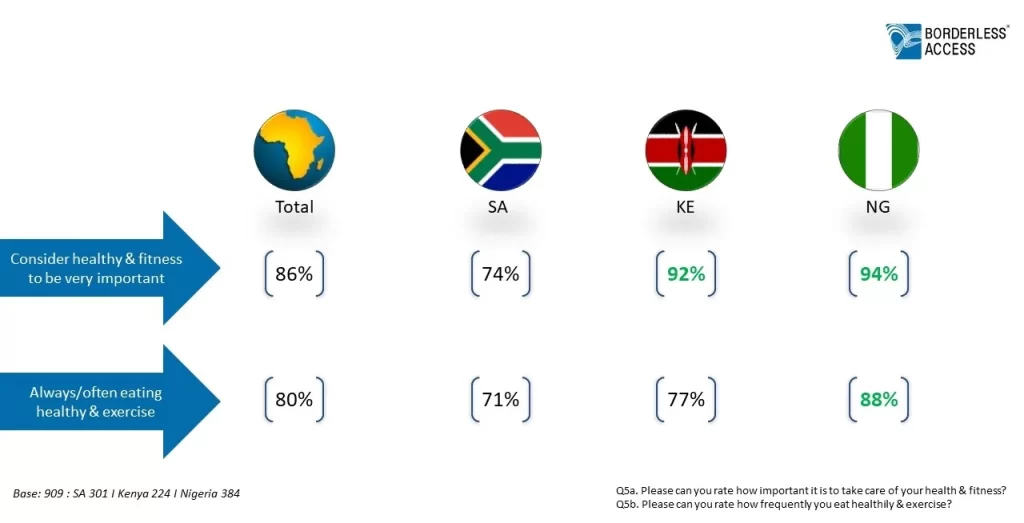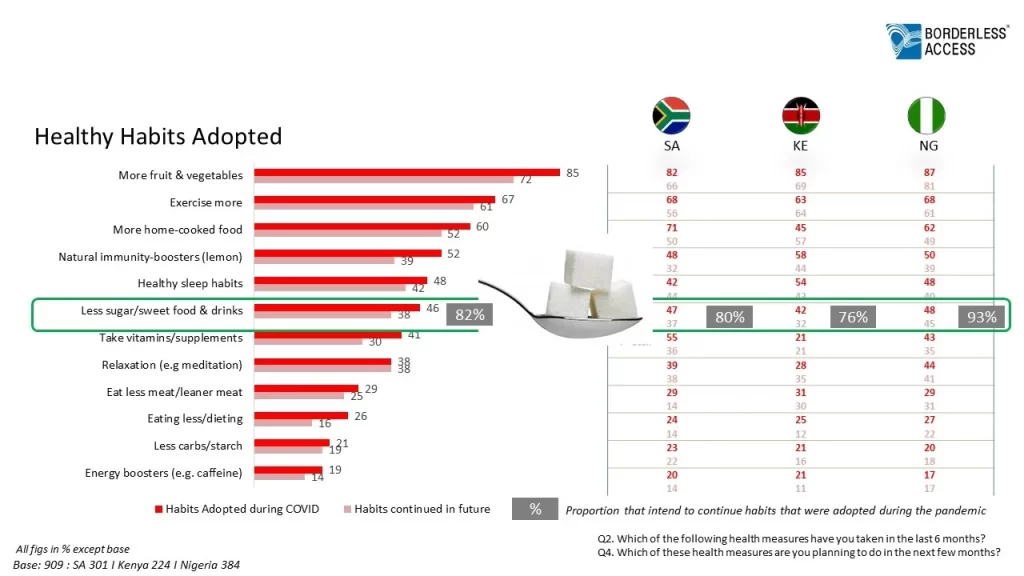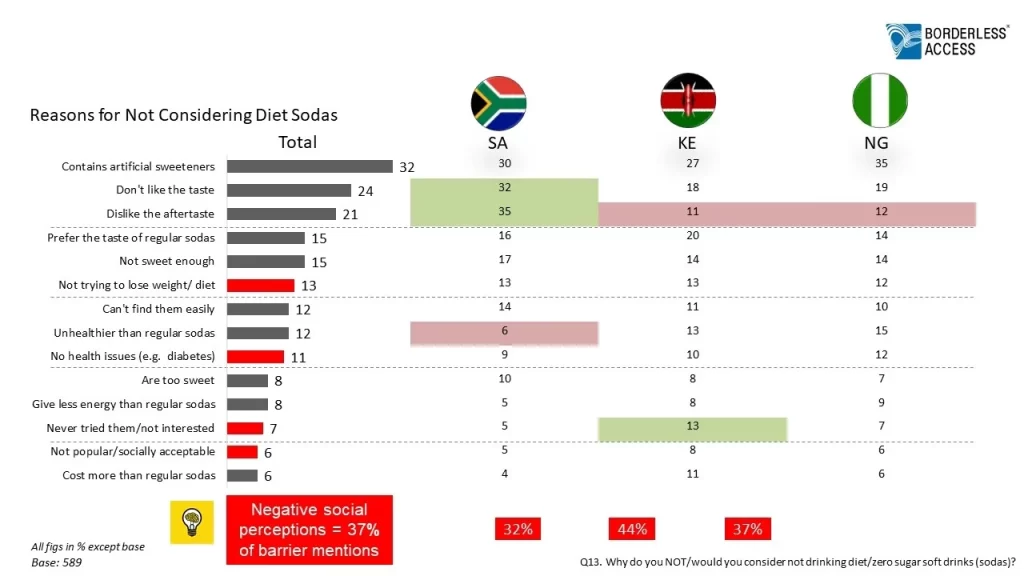Why tech-enabled research is the right solution for Africa: Exploring a Coca-Cola Africa case study on healthy consumption habits.
It goes without saying that life these days is digital. The internet never sleeps … in just 60 seconds it sees a frenzy of activity and engagement: In one global minute, over 208,000 people participate in Zoom meetings, 41,7 million WhatsApp messages are shared, 6,659 packages are shipped by Amazon and over 347,000 Instagram stories are posted … to name but a few of the active platforms on the web.

Africa is certainly no longer the dark continent when it comes to internet usage. Africa is online, with WhatsApp being the most active messenger app across its expanse. A staggering 93% of its inhabitants actively use the app.
The pandemic accelerates Africa toward tech-enabled research
Digital research methodologies enable researchers to adopt a more consumer-centric approach than allowed by traditional methodologies. With technology, real-time consumer behavior can easily be measured and tracked – a stark contrast to traditional means, which relied on consumers recalling facts about their behavior or consumption after a lapse of time.
Globally, digital research now comprises 45% of overall research spend. Before 2020’s global pandemic, Africa lagged far behind the worldwide average, with only 5% of its research spend being allocated to this space. However, as traditional methodologies pivoted during 2020, digital research grew dramatically faster than legacy research, with Africa also starting to follow suit.
On a worldwide scale, Borderless Access recorded increased levels of panel activity during the lockdown, with respondents spending more time on surveys (across devices) than they had previously. While Africa is not yet up to the same level, African companies are starting to join the digital revolution as a necessary result of the disruption that Covid-19 precipitated.
Coca-Cola Africa leverages Borderless Access’ bot-enabled research
Coca-Cola Africa, known for its progressive thinking and innovative strategic directions, recently collaborated with Borderless Access to pilot a bot-enabled survey. The survey aimed to understand the sudden shift in consumer behavior toward healthy lifestyle habits as a result of the COVID-19 pandemic and to explore its impact in terms of future beverage purchase and consumption patterns.
Borderless Access proposed a WhatsApp chatbot research methodology that brings insights to life in the form of photos, videos, speech and text – a perfect blend of quantitative and qualitative research which allows brands to hear directly from their consumers in real-time. With its first-party digital panelists, this methodology enables communication with hard-to-reach consumers in a much more effective way than traditional research does.
With over 900 participants across three countries (South Africa, Kenya and Nigeria), the survey ran for six days, resulting in a quick turnaround of results and real-time data. A qual-quant approach was adopted, meaning that surveys included both closed-ended questions as well as the sharing of rich content such as images, videos and audio clips.
Healthy behavior has seen a boom due to COVID-19
The worldwide pandemic has naturally resulted in a consumer mind-set shift toward healthier habits. Coca-Cola Africa wanted to ascertain whether this trend would continue in the new normal in Africa, and how likely it would be to affect consumption habits going forward.
Findings indicated that the vast majority of consumers are aware of the importance of healthy eating and fitness. Most consumers are putting this consideration into practice, especially in Nigeria and Kenya where consumers claim to practice healthy eating and fitness regularly.

Not surprisingly, the trend toward health has increased since the onset of the global pandemic. In all three countries, people are eating more fruit and vegetables and drinking more water. In South Africa, the third most practiced healthy habit is eating more home-cooked food (presumably strongly linked to the country’s hard and extended lockdown of the restaurant and take-out business), whereas in Nigeria and Kenya people claim to be exercising more.
True to human nature, many people don’t feel they are likely to keep up all the healthy habits that they have adopted during the pandemic. However, consumers would like to continue with at least some of the good habits they developed during the lockdown. Notably, 82% of African consumers would like to continue with reduced consumption of sugary food and beverages.

Naturally, from the perspective of Coca-Cola Africa, this ties in with their strategy of focusing on diet Carbonated Soft Drinks (CSDs) which offer consumers reduced or no sugar options.
Functional concerns (such as taste) are a barrier to diet CSDs
A third of consumers in Africa currently claim to consume diet CSDs on a monthly basis. Fifty-nine percent would consider drinking them in future – this percentage being driven upwards by Kenyan and Nigerian consumers.
Neutral or negative connotations around diet CSDs would need to be overcome in order to increase consideration, especially in South Africa. Key barriers to trial include perceptions that they pose health risks due to containing artificial sweeteners and a dislike of the taste and aftertaste of diet CSDs. Lack of interest and negative social perceptions (that diet CSDs are only for people with health issues) also hamper consideration.

Those who do already consume or consider consuming diet CSDs are well aware that health is the main driver for doing so. They wish to reduce their sugar intake and avoid the risk of other health concerns, such as diabetes. Further, there is a growing perception of the importance of maintaining a balanced diet.
Opportunities to leverage balance and entrench new rituals
Diet CSDs are seen to have a medium health perception compared to other beverages, thereby adequately upholding notions of balanced consumption. Coca-Cola Africa is exploring opportunities around leveraging the concept of balance to drive positive associations towards the category.
WhatsApp research methodologies are perfect for Africa
In a continent with abundant WhatsApp access, coupled with the logistical challenges of legacy research, virtual interviewer chatbots are the ideal solution. With the ability to delve deeply into qualitative methodologies as well as to elicit quantitative responses, the recent improvements made to virtual interviewer techniques are immense.
As the results of Coca-Cola Africa’s study indicate, deep insights can be gleaned quickly and effectively from tech-enabled research, affording companies the ability to remain at the forefront of their game. Companies operating in the continent can and should take the progressive step of embracing these methodologies to find out what the African consumer is wanting and thinking: Rich, deep insights are ready to be collected and harnessed via bot-enabled chat-based research.
Technology is not the disruptor: It is the solution
It is far too easy for legacy businesses to sit back and blame technology for putting an end to their livelihoods: taxicabs initially blamed Uber for killing their business; Blockbuster blamed Netflix for the same travesty. But technology is not to blame.
Technology itself is not the disruptor: Not being consumer-centric is.
Technology stepped in to provide a solution that spoke to consumer needs in a way that existing businesses were failing to do. Globally and particularly in Africa, technology holds the potential to revolutionize research, by enabling companies to uphold consumer-centricity as the primary factor in every business decision.
For more information please visit www.borderlessaccess.com/ba-insightz.
This article, authored by Bev Tigar-Basset – AVP, Busines Development for Borderless Access, Sub-Saharan Africa, was originally published on Quirks.com









